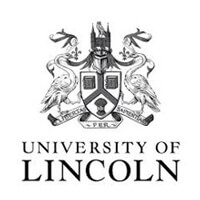fees waived
International Relations and Politics, BA (Hons), with industry placement
University of Lincoln, United Kingdom
Subject ranking
UK / Times 76th
UK / Guardian 77th
UK / CUG 116th
Costs
food & rentS$16.8K / year
Entry requirements
Scholarships
Unlimited quantity
Unlimited quantity
Unlimited quantity
Unlimited quantity
Limited quantity
Limited quantity
Information
Code
Code
Intakes
Website (External)
Programmes
Information
Duration
2028
Course summary
Lincoln’s BA (Hons) International Relations and Politics degree provides students with access to a diverse range of modules in politics and international relations. Students can explore British Politics, international diplomacy and the emergence of global institutions. Through the study the national, comparative, international and global politics, students have the opportunity to develop an appreciation of the key themes driving contemporary International Relations and Politics. The programme is designed to develop an understanding of the influence of different political cultures and traditions on outcomes. On this course, students have the chance to examine the complex political issues, such as global inequality, religion and sectarianism, conflict and democratisation, which affect the world today. There is a strong emphasis on skills development on this course and students can learn how to collect and analyse data, draft policy proposals, produce oral and written presentations and work at a high level of individuality and as part of a team. Our academics offer a thorough grounding in British and global politics and support students to develop vital analytical, evaluative and critical-thinking skills. In the first year of the degree, core modules introduce British government and politics and international relations. Students can begin to examine the key concepts which underpin both disciplines. In the second and third years, there are opportunities to develop in-depth knowledge of both subjects through core modules on topics including British political parties, politics and international relations theory and global governance. The core Model United Nations module gives students the opportunity to learn about international diplomacy and to practise negotiating skills in a simulated general assembly. Other optional modules enable students to study subjects of special interest, such as intelligence and national security, contemporary Chinese politics, international relations in the Middle East, human rights, genocide, war crimes and multiculturalism. For the most up to date module information, please visit the course page for this programme on our website. Some programmes provide you with the opportunity to focus your study in a particular area through optional modules. Timetabling arrangements may limit the availability of some optional modules to some students. As the options often reflect staff research interests, they may alter over time due to staff availability. The way students will be assessed on this course will vary for each module. It could include coursework, such as a dissertation or essay, written and practical exams, portfolio development, group work or presentations to name some examples. Throughout this degree, students may receive tuition from professors, senior lecturers, lecturers, researchers, practitioners, visiting experts or technicians, and they may be supported in their learning by other students.Modules
Assessment method
In the first year of the degree, core modules introduce British government and politics and international relations. Students can begin to examine the key concepts which underpin both disciplines. In the second and third years, there are opportunities to develop in-depth knowledge of both subjects through core modules on topics including British political parties, politics and international relations theory and global governance. The core Model United Nations module gives students the opportunity to learn about international diplomacy and to practise negotiating skills in a simulated general assembly. Other optional modules enable students to study subjects of special interest, such as intelligence and national security, contemporary Chinese politics, international relations in the Middle East, human rights, genocide, war crimes and multiculturalism. For the most up to date module information, please visit the course page for this programme on our website. Some programmes provide you with the opportunity to focus your study in a particular area through optional modules. Timetabling arrangements may limit the availability of some optional modules to some students. As the options often reflect staff research interests, they may alter over time due to staff availability.
A local representative of University of Lincoln in Singapore is available online to assist you with enquiries about this course.

